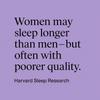Recent findings presented at the American College of Cardiology’s Annual Scientific Session reveal that lifestyle risk factors affect women’s heart health more severely than men’s. This large-scale study, analyzing data from over 175,000 adults in the Ontario Health Study, underscores the need for gender-specific cardiovascular risk assessments to improve early detection and prevention.
The study focused on eight critical cardiovascular risk factors: body mass index (BMI), blood pressure, diet quality, physical activity levels, sleep habits, smoking status, blood glucose, and cholesterol levels. Interestingly, women generally showed healthier profiles, with 9.1% of women achieving ideal heart health across all factors compared to only 4.8% of men. Moreover, fewer women (21.9%) fell into the poor health risk category than men (30.5%).
Despite these promising numbers, women with multiple unhealthy risk factors faced dramatically higher chances of developing severe cardiovascular disease. Women with poor cardiovascular health had nearly five times greater risk of heart disease, compared to 2.5 times greater risk in men with similar health profiles.
Why Women’s Heart Health Requires Special Attention
Experts emphasize that women, especially approaching menopause, are at increased risk for cardiovascular events due to hormonal and biological changes. Additionally, women often experience atypical heart disease symptoms, leading to underdiagnosis and delayed treatment.
Practical Tips for Protecting Women’s Heart Health
-
Maintain a healthy body weight (BMI) through balanced nutrition and exercise
-
Monitor and manage blood pressure regularly
-
Get adequate sleep and avoid smoking
-
Track blood glucose and cholesterol levels with your healthcare provider
-
Stay physically active with at least 150 minutes of moderate exercise weekly
-
Foster strong social support networks for mental and emotional well-being
Ongoing research will continue to reveal how biological sex and lifestyle factors interplay in heart disease risk, emphasizing the importance of personalized care in cardiovascular health.




